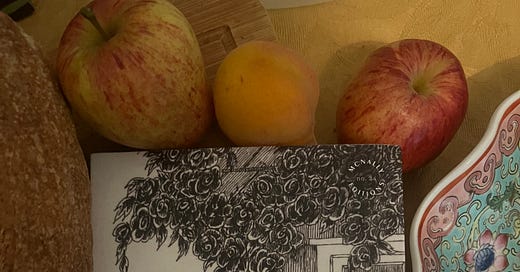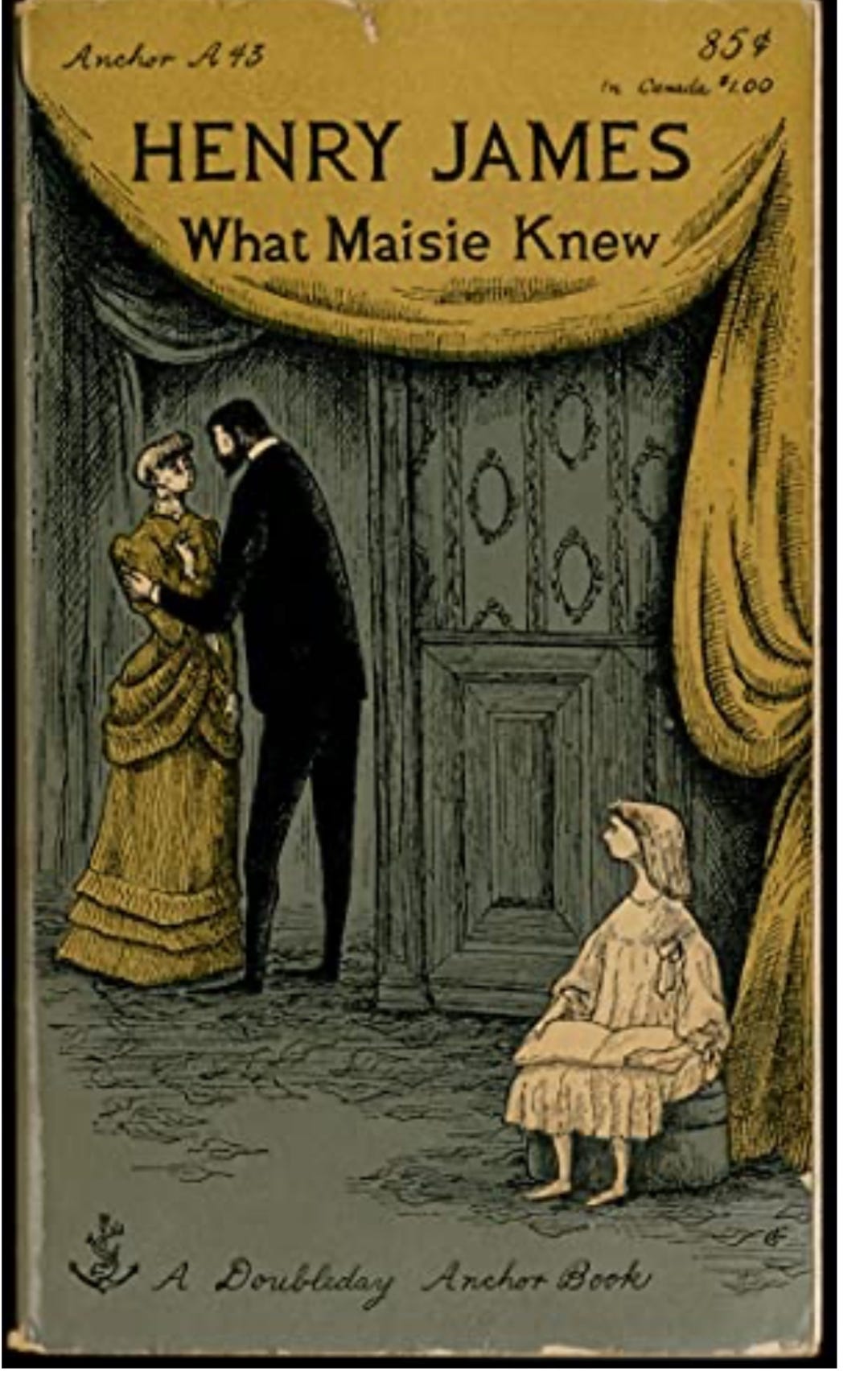The Girls: A Story Of Village Life
John Bowen
republished by McNally editions.
It is only the beginning of February, but I am quite sure this is the best and most beloved book I will read this year. It is a reissue, originally published in the late 80s. I finished it a few days ago but am still living in its captivating haze.
Janet and Susan are a couple who live in rural Warwickshire in the 70s. They have a farmhouse with a smelly old underground septic tank and run a ‘gift shop’ which sells smocks ‘intricately hand stitched of various sizes and colours, mostly shades of porridge’ , clogs, ‘potted meats, confits and pates,’ Elderflower cooler and ginger beer, ‘ salsify, ratoulli, peperonata, purees of parsnips with cream and walnuts, fruit shortcake’ ‘hand thrown pots of great beauty’, goat’s cheese wrapped in leaves made in their dairy, chutney, jam, eggs. One day a breeding boar escapes from a truck and causes havoc, breaking their antique shop mirror, eating their honeycomb, staining their smocks and smashing their eggs, an allegory for what is to come when a man enters their lives . After the boar, Susan has a crisis and goes on a packaged holiday to Greece. While she is gone, Janet sells their wares at a craft market aimed at canal boat holidaymakers where she meets Alan, who works at a stall selling early musical instruments ‘Rebeces and recorders, crumhorns and cornamusen, Glastonbury pipes, an Appalachian dulcimer’ but ‘many of the punters seemed to be embarrassed by early musical instruments and looked away’. Alan and Janet sleep together, though Janet thinks Alan looks bit rabbity. Janet becomes pregnant. Alan leaves when the craft fair ends, not knowing Janet is pregnant and Janet and Susan make up and raise the baby boy, nicknamed Butchles . When Alan unexpectedly returns to visit, Susan is jealously protective of their little family and does not want Alan to know it is his biological son. It is a dark, hilarious and endlessly charming book and full of wonderful sentences like:
‘She began to perform certain tasks obsessively, watering the vegetable patch and the fruit trees every evening, keeping her head turned away so that Jan should not see that she was crying. Other tasks would be skimped; the over-watered French beans, which she neglected to pick, grew long as cutlasses.’
‘ ‘On the left was the pub, The Deep Content, Authentic Ales, with a sign outside ‘Bar Snacks. Ploughman’s Lunch. Quiches. Scampi in the basket.’
‘variegated ivy sold in terrariums which looked like shrunken conservatories, as if some form of bonsai treatment had been applied to the glass and its anodised metal framework.’
John Bowen has that rare and desirable skill, like Nabokov, of wrapping everything in their own mesmerising fabric that even mentions of things as ugly as airports or gas stations appear beautiful and captivating and that feeling you carry from the book into reality, making life in an ugly world a little more bearable. The fabric of this book is blood stained floral Laura Ashley. There are references in The Girls to Monteverdi on cassette, Dorothy L. Sayers The Railway Children. It makes you want to dab rosemary scented essential oil on everything and eat cassoulet and humongous fry ups. It is one of those books that offers ways of being that aren’t soured by the essential for plot sinister shenanigans of the characters and stay with you in a minute aspirational manner; a desire to look at renaissance paintings, or read Eurpidies or eat marmalade. The murderous or bad behaviour is part of what makes it alluring, it wouldn’t be a story without it. I am talking Miss Jean Brodie, The Secret History, We Have Always Lived in the Castle.
The author John Bowen, who also wrote plays and film scripts, died in 2019. Like the characters, he lived with his partner David Cook, in rural Warwickshire. Cook was an actor, famous for a 70s puppet show, and also an author, his novel Walter won a Hawthornden Prize. I am going to read that and some hunted down other out of print John Bowen.
The author Barbara Comyns was from Warwickshire too, I am beginning to think there is something very special and strange about Warwickshire in particular. While John Bowen is entirely his own thing, I would recommend it to readers of Comyns, of Penelope Fitzgerald, to people who like old 70s and 80s BBC folk horrors and listen to opera.
The cover of the Mcnally Editions reissue is a zoom in of the original release illustration by artist and author Edward Gorey. At first I thought a Gorey illustration had been used solely on the reissue to draw people in- it certainly did for me, expecting dark fancy and receiving it delightfully preserved in little jars. Edward Gorey, who is strangely not as popular in the UK as he is in North America, was a spiritual briton, like Henry James and T.S Eliot though he only visited the UK once, to Scotland in fact, to see the Hebrides because his favourite film was Powell and Pressburger’s I Know Where I’m Going! Along with writing his own books, Gorey illustrated many classics during the 70s and 80s which are worth looking at.
Solely based on The Girls John Bowen will be added to my cabinet of special and beloved Britons ( Sir Thomas Browne, Horace Walpole, Muriel Spark, the cast of Kind Hearts and Coronets, Leonora Carrington et al)
Below is Edward Gorey’s cover for What Maisie Knew





Lovely review. Thanks for sharing. Of course, now I just want to stop and read. It wouldn't be a bad day!
I've never heard of this John Bowen, so will check it out. Thanks for the review! Bowen also wrote the TV plays Robin Redbreast, which is like a small-scale precursor to The Wicker Man, and A Photograph. I've been getting into David Cook's work recently. I liked Walter a lot. The two of them created the TV detective series Hettie Wainthropp Investigates, which was based on one of Cook's novels.